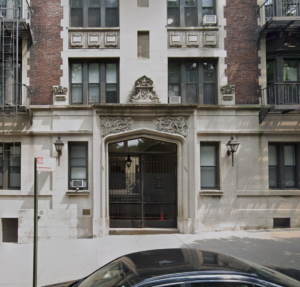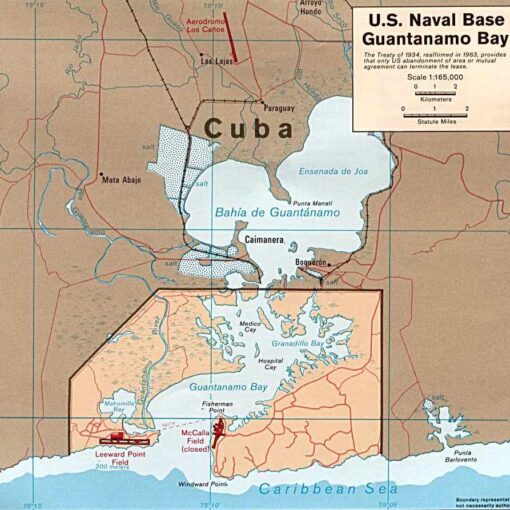
By Bernard E. Harcourt
Indeed, since late 2014, the civil fleet has shifted from an auxiliary to the state (filling the gap left by Mare Nostrum and acting under the coordination of European maritime authorities) to being, at times, a semi-autonomous cooperative practice and network aimed not only at saving life, but at keeping open migrants’ route to Europe. While it is important to stress that the fleet has always campaigned for the return of state-run rescue operations and has always sought to maintain a relationship with maritime authorities, it nevertheless, in some instances, openly positioned itself as an alter-state: “a no borders navy” coordinated by the civil maritime rescue operation center.
— Chloe Howe Haralambous, “The Rescue Wars”
In her brilliant opening essay “The Rescue Wars,” Chloe Howe Haralambous situates the civil rescue operations in the Mediterranean precisely at the intersection of cooperative practices and governance: the civil society rescue missions that emerged in the vacuum created by the absence of the European states—and worse, by their positively harmful concerted actions—rapidly became an alternative to the state, as we know it. They served the traditional state function of security, saving those stranded at sea, at risk of death, while contesting the border policies of the traditional states. They rested on cooperation, relied on cooperative norms of maritime law (the obligation to rescue a person in distress—to respond to the “mayday” emergency signal), and formed a substitute to sovereign power. In so doing, they threatened sovereign power and suffered its wrath.
The rescue at sea operations in the Mediterranean during the 2010s are a microcosm of cooperation in the interstices of and against the violence of the state. Just like the Black Panther Party in the previous public seminar Coöperism 10/13, these civil society initiatives constitute a form of governing.
When we focus on these civil operations, follow them closely, and experience the world through their eyes, ears, and emotions—as we do in the remarkable documentary that filmmaker Chiara Towne has directed and produced, Channel 16, and that we preview at the public seminar—it is almost possible not to grasp the larger reality within which these missions operate. Because we see the successes, the saves, the rescues. We watch the rescues. But we know the harrowing statistics. According to the Missing Migrants Project of the International Organization for Migration (IOM), there have been over 27,000 migrants who drowned in the Mediterranean since 2014. These are the horrifying conditions that motivate the rescue activists. They are also the dreadful deaths that belie the charges of collusion that European governments have levied against the rescue operations.
The cooperative efforts of the rescuers have been labeled collusion and conspiracy—and prosecuted as such—in order to define a criminalized group and shift the discourse about security. Not the security of the women, men, and children at risk of drowning in the Mediterranean, but the security of borders and the war against trafficking. In the same way that the state’s actions at sea trouble the concept of security, we might ask ourselves as well what are the real differences between cooperation and collusion in practice? This makes me think about the Fugitive Slave Act and the work of Black and Northern abolitionists prior to the Civil War. It is by criminalizing the migrants and marking the rescuers as colluders that the state is able to claim that it is advancing public safety and security. The criminalization is the condition of possibility for states to reassert their sovereignty. (We visited some aspects of this previously in our seminar “Open Borders” at Abolition Democracy 12/13, reading Harsha Walia’s brilliant book Borders and Rule.)
Now, when we reflect on the state and racialized mass incarceration, the most important first step is to rid ourselves of the commonsense idea that punishment is related to crime. To understand regimes of punishment, we need first to sever the link between crime and punishment—as W.E.B. Du Bois, Angela Davis, the Frankfurt School, Michel Foucault, and modern abolitionists teach us. (For more on this, see Chapter 6 of Cooperation: A Political, Economic, and Social Theory.) The prison serves other functions than to combat crime, and it is critical that we eradicate the purported relationship between crime and punishment in order to expose all the work that disciplinary practices achieve in modern society. As Michel Foucault opened Discipline and Punish: “We must first rid ourselves of the illusion that punishment is above all (if not exclusively) a means of reducing crime and that, in this role, according to the social forms, the political systems or beliefs, it may be severe or lenient, tend toward expiation or instead toward obtaining reparation, applied in pursuit of individuals or for the attribution of collective responsibility.”
In a similar way, when we reflect critically on the state, borders, migrants, and the harrowing passage through the Mediterranean, we need first to rid ourselves of the commonsense idea that these regimes of state intervention at sea are about saving lives. We need to sever the link between the state and safety. The political economy surrounding migration through the Mediterranean serves other functions for the state than to rescue persons in distress. It is about asserting sovereignty and power, projecting dominance, and reestablishing forms of colonialism (as evidenced by the outsourcing, funding, and training of the Libyan coast guard by the Italian government).
It is in this critical space that we can begin to examine properly these civil rescue missions, how they depend on cooperation, and how they constitute an effective alternative to the state. Chloe Howe Haralambous poses three questions for our discussion:
- How does the practice of rescue at sea open up new imaginaries of solidarity and cooperation?
- How does solidarity and cooperation at sea emerge out of the historical backdrop of class or anti-colonial struggle?
- How can we elaborate the place of coöperism in the relationship between the state and civil society as it is, or as we want it to be, negotiated?
To help us address these critical questions, we are honored to be joined by four brilliant theorists and activists: Chloe Howe Haralambous joins us right after her dissertation defense and so will be a doctor of English and Comparative Literature at Columbia University by the time of our seminar; she specializes in migration and revolution in the 21st century, and her dissertation, The Rescue Plot: Politics, Policing and Subterfuge in the Mediterranean Migrant Corridor, examines fictional and forensic narratives of the sea passage between Libya and Italy, with a particular focus on the radical traditions of solidarity at sea. Chloe co-founded the Mosaik Support Center for Refugees and Locals on the island of Lesvos, Greece, and worked as Advocacy Officer, Tactical Coordinator and Guest Coordinator on board the ships and aircraft of Sea-Watch, an activist organization that rescues border-crossers in the Mediterranean Sea. Miguel Duarte is a theoretical physicist and a sea rescuer in the Central Mediterranean, active in the migrants’ rights movement since 2016. He is part of HuBB – Humans Before Borders, a platform for the protection of migrants’ rights. Lorenzo Pezzani is an architect and professor in the Department of the Arts of the University of Bologna, where he leads LIMINAL, a laboratory investigating intersectional (im-)mobilities through forensic imagination. He is the co-founder of Forensic Oceanography and Border Forensics, which bring new interdisciplinary perspectives on pressing issues such as migration, border violence and the environmental crisis. Chiara Towne is a filmmaker and screenwriter based in Los Angeles who has been documenting migration in the Mediterranean since 2017, most recently with her short film Channel 16.
Welcome to Coöperism 11/13!




